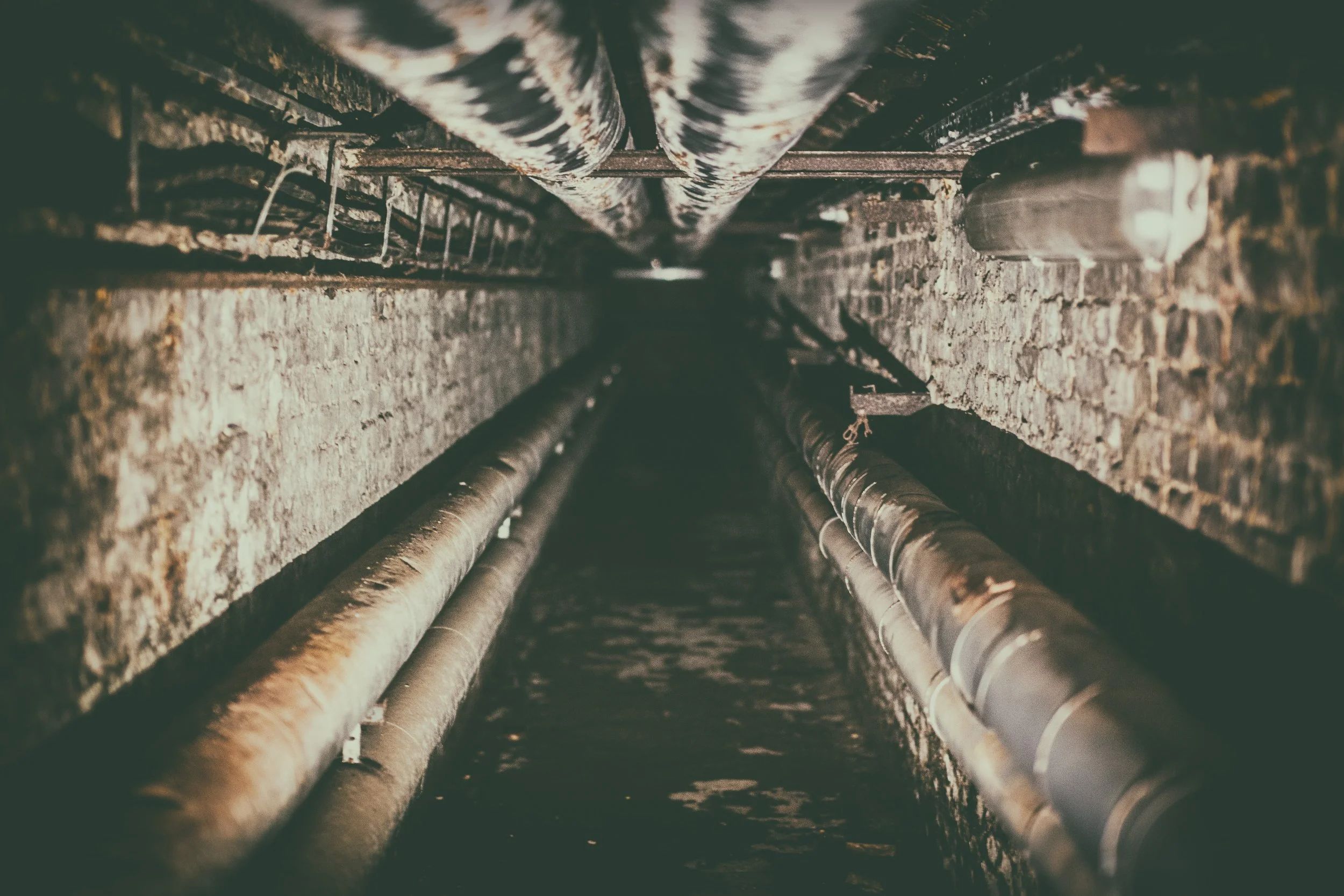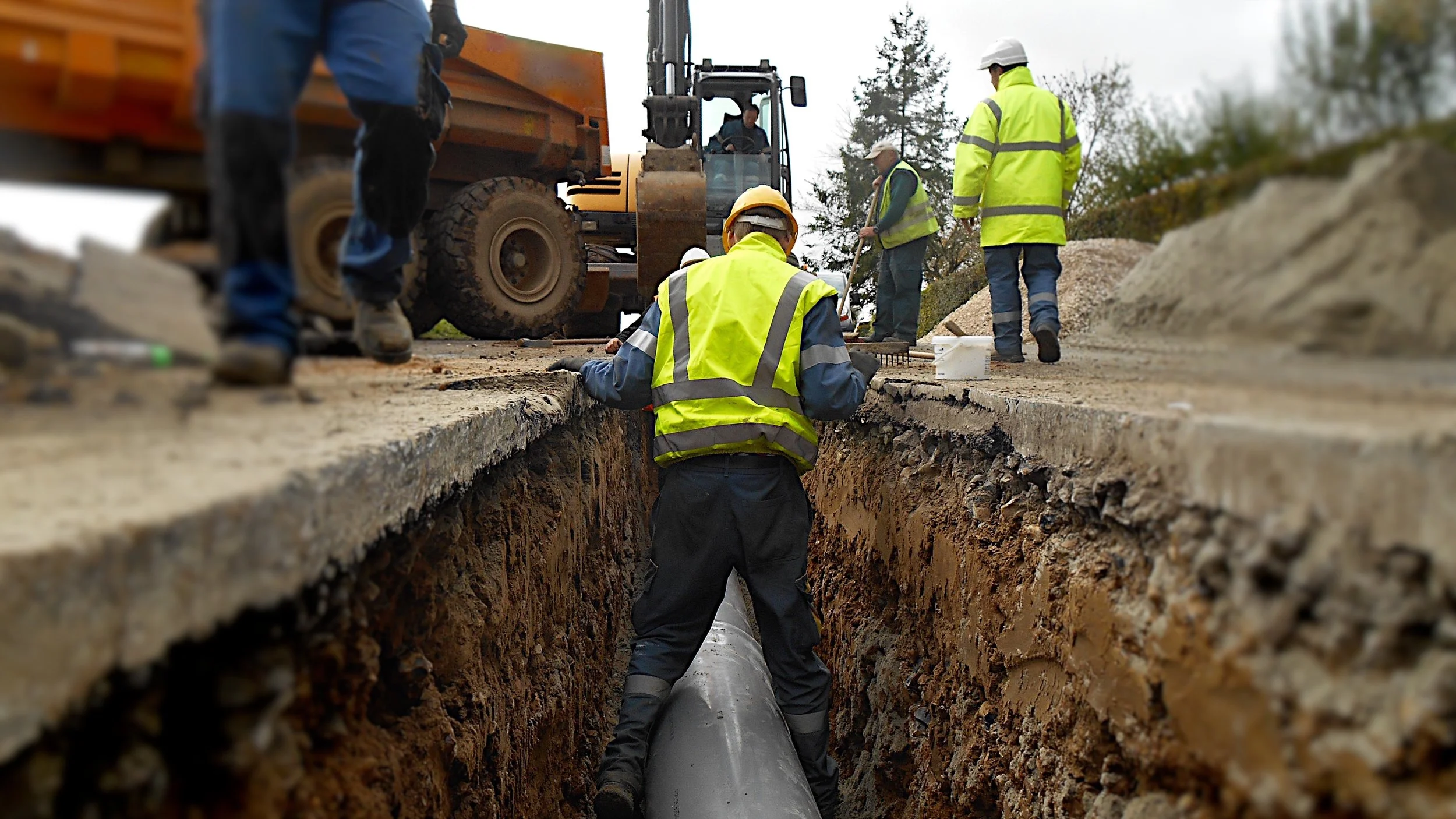WHAT ARE UNDERGROUND UTILITIES AND WHY ARE THEY IMPORTANT?
UNDERGROUND UTILITIES
Underground utilities are a network of pipes, wires, and other equipment that are installed beneath the ground surface to supply essential services to a community. These services may include electricity, natural gas, water, sewage, telecommunications, and more.
One of the main advantages of underground utilities is that they are generally out of sight and therefore do not detract from the aesthetic appearance of a community. In addition, they are typically more durable and less susceptible to damage from natural disasters such as storms and earthquakes.Another advantage of underground utilities is that they are less likely to interfere with other infrastructure or activities on the surface. For example, underground power lines do not pose a risk of electrocution to birds or other wildlife, and underground water pipes are less likely to be damaged by construction equipment or vehicle traffic.However, installing and maintaining underground utilities can be more challenging and expensive than above-ground systems. For example, excavating the ground to lay pipes or cables can be labor-intensive and time-consuming, and repairing or replacing damaged underground infrastructure can be difficult and costly.To ensure the integrity and reliability of underground utilities, regular inspections and maintenance are typically required. This may involve using specialized equipment such as ground-penetrating radar or leak detection sensors to identify potential problems, and performing repairs or upgrades as necessary.In some cases, underground utilities may be owned and operated by a public utility company, while in others they may be owned and maintained by individual property owners or homeowners' associations. In either case, it is important to follow proper procedures and guidelines to ensure the safety and reliability of these critical systems.Why are underground utilities important?
Underground utilities, such as water and sewage pipes, electrical and communication cables, and natural gas lines, are critical for the functioning of modern societies. These hidden networks of infrastructure are responsible for providing essential services, including clean drinking water, reliable electricity, and effective communication and transportation.
One of the primary advantages of underground utilities is that they are out of sight and therefore do not impact the aesthetics of our cities and neighborhoods. Above ground utilities, such as electrical poles and wires, can be unsightly and take up valuable space that could be used for other purposes. Underground utilities, on the other hand, can be easily hidden and do not detract from the appearance of our built environment.
Another advantage of underground utilities is that they are more reliable and resilient than their above ground counterparts. Above ground utilities are susceptible to damage from natural disasters such as storms, high winds, and falling trees. Underground utilities, on the other hand, are protected from these types of events and are therefore less likely to be disrupted. This can help to ensure that essential services are maintained even in the face of extreme weather conditions.
In addition, underground utilities are safer than above ground utilities. Above ground electrical wires, for example, can pose a significant hazard if they are damaged or come into contact with water. Underground electrical cables, on the other hand, are protected from these types of dangers and are therefore less likely to cause accidents or injuries.
Furthermore, underground utilities can help to conserve energy. Above ground utility lines, such as electrical poles and wires, can cause resistance and loss of energy as electricity is transmitted over long distances. Underground electrical cables, on the other hand, are more efficient at transmitting electricity and can help to reduce energy loss. This can help to save energy and reduce greenhouse gas emissions.
Despite the many benefits of underground utilities, there are also some challenges associated with their installation and maintenance. Digging underground can be labor-intensive and costly, and care must be taken to avoid damaging existing underground utilities during excavation. In addition, underground utilities are not easily accessible for repairs and maintenance, which can make it more difficult to address problems when they arise.
How do underground utilities affect construction projects?
Underground utilities, such as water, sewage, and electrical lines, play a crucial role in the construction of buildings and other structures. These utilities are necessary for the functioning of any modern society, but they can also pose challenges for construction projects.
One of the biggest challenges posed by underground utilities is the potential for damage during construction. If a utility line is not properly marked and accounted for, it can be accidentally damaged by construction equipment. This can lead to costly repairs, delays, and even hazards such as gas leaks or electrical fires. To avoid these problems, it is important for construction crews to carefully plan and coordinate with utility companies before beginning any excavation work.
Another challenge is the potential for conflicts between different utilities. For example, if a construction project requires the installation of new water lines, there may be conflicts with existing electrical or sewage lines. In these cases, it is important for the construction team to work closely with utility companies to find solutions that minimize disruptions and avoid conflicts.
In some cases, underground utilities may also need to be relocated to accommodate a construction project. This can be a complex and time-consuming process, as it requires careful planning and coordination to ensure that the utility lines are properly relocated without interrupting service. Additionally, the cost of relocating utilities can be significant, and it is important for construction teams to factor this into their budgets and plans.
Overall, underground utilities can play a major role in the success of a construction project. By carefully planning and coordinating with utility companies, construction teams can ensure that these utilities are properly accounted for and minimize the risks and challenges posed by their presence. This can help ensure that construction projects are completed on time, within budget, and without any unexpected disruptions or hazards. Underground utilities are an essential part of modern construction projects, but they can also pose challenges and risks. By carefully planning and coordinating with utility companies, construction teams can ensure that these utilities are accounted for and minimize the potential for damage or conflicts. This can help ensure that construction projects are completed safely, efficiently, and on schedule.Featured Blogs
SIKES CONCRETE INC.
8030 FL-77, Southport, FL 32409
850-265-4564






